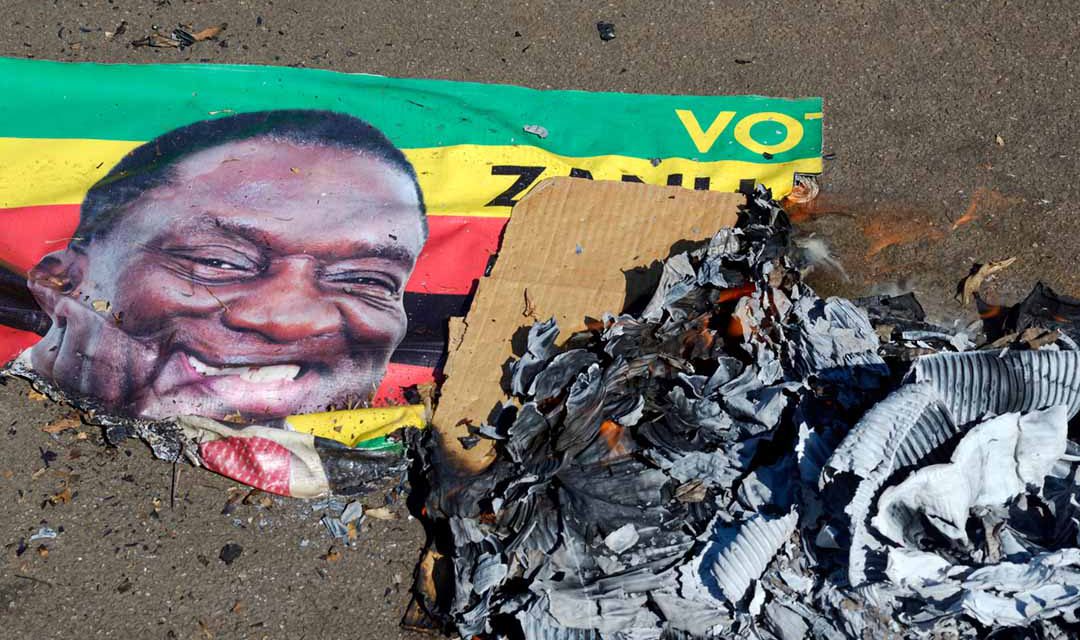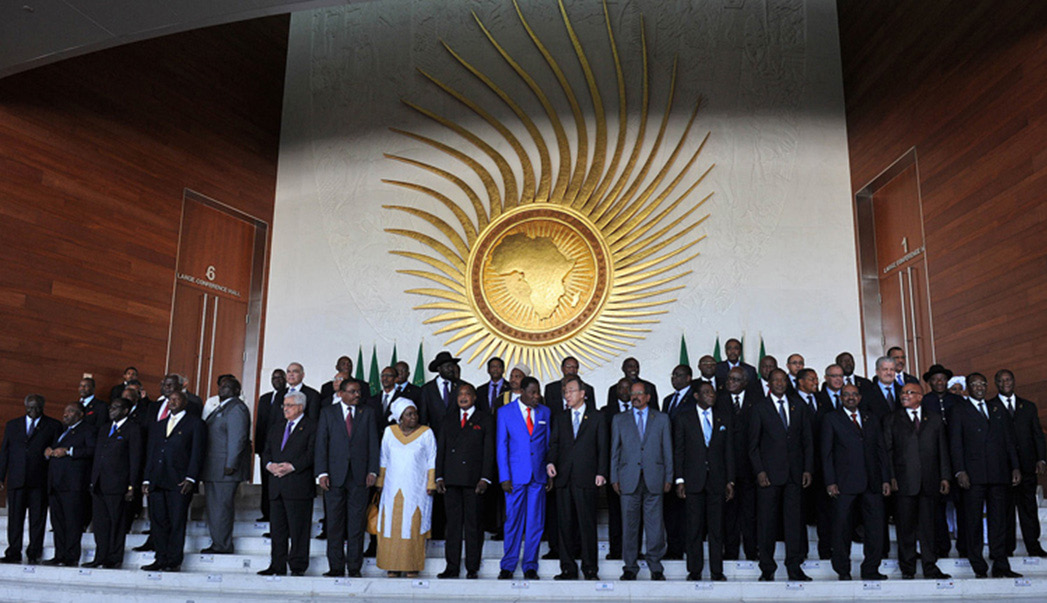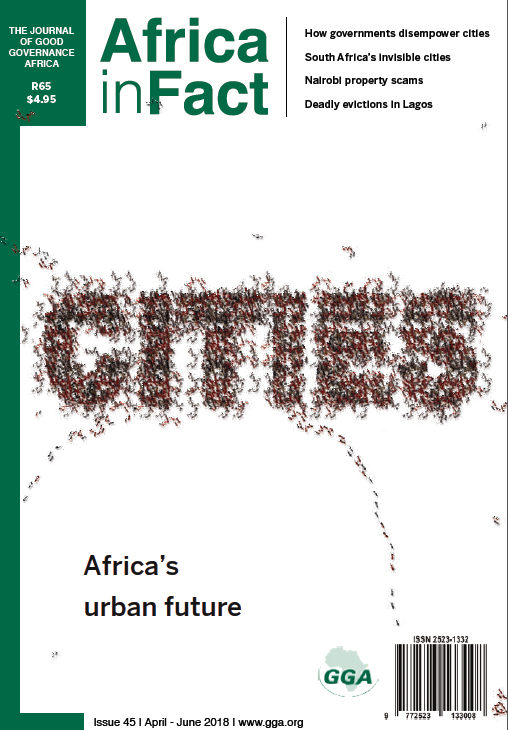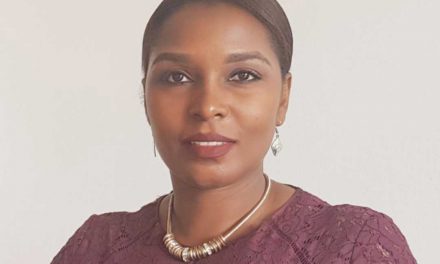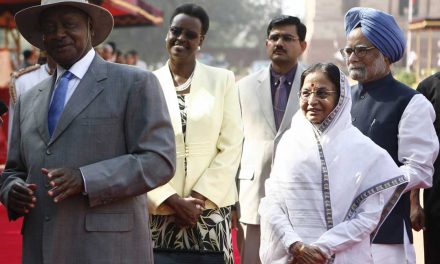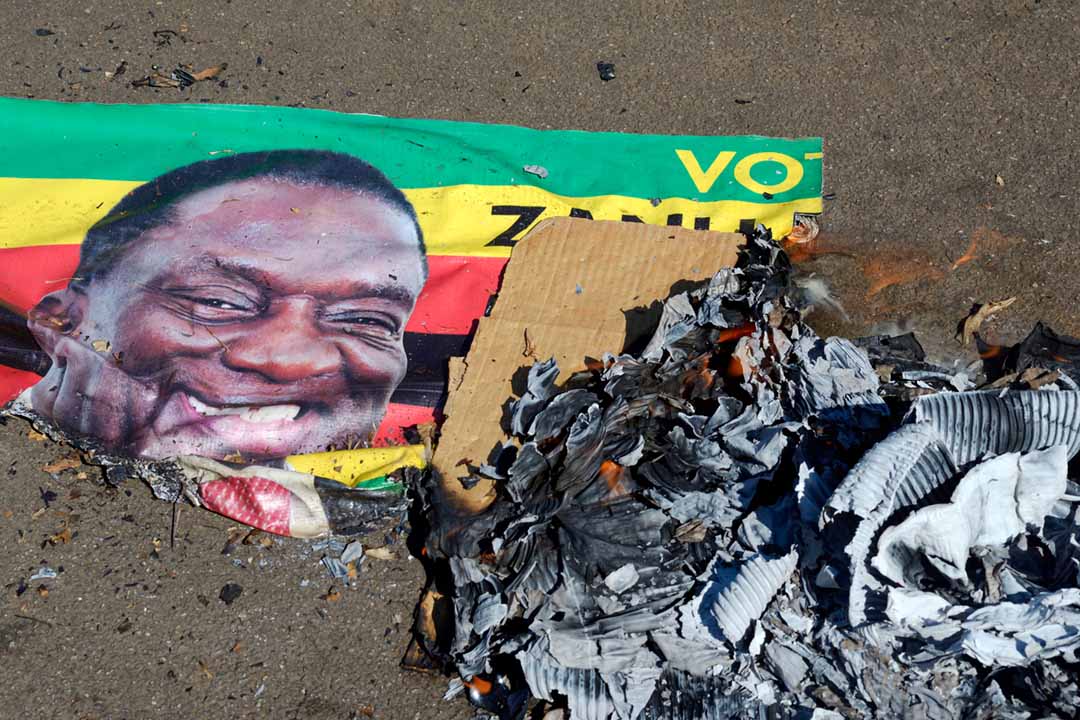
Zimbabwe, Harare, 1 August 2018. Running battles in Harare between disgruntled MDC supporters and the police /army. Fires we lit throughout the city.
Liberation movements: after the war
More than any other continent, Africa boasts an abundance of former national liberation movements serving in government. Understanding the history of these organisations, particularly the manner in which they attained power, is crucial to comprehending their thinking and behaviour.
Two distinct types of resistance movement came into being on the continent. Across much of southern Africa, liberation struggles were linked to stalled decolonisation or delayed transitions from white minority government to black majority rule. Elsewhere, armed struggles were analogous to civil war between indigenous populations.
In both situations, the origins of revolutionary struggle lay in state repression and coercion. An intolerance of popular debate blocked avenues for political participation, while the excessive use of force normalised the conduct of violence. This combination encouraged opponents to take up arms with the objective of overthrowing the government by force. “Violence was now officially accepted as the legitimate tool of liberation,” Zimbabwean academic Sabelo Ndlovu-Gatsheni wrote in a 2015 book on his country’s politics, “just like it was officially accepted by the colonialists as the tool of colonial conquest and maintenance of white settler colonial power.”
The combination of revolutionary objectives and limited resources generally encouraged opponents to launch low-level insurgencies in remote areas. Accordingly, liberation movements such as the Tigray People’s Liberation Front (TPLF) and the Zimbabwe African National Union (ZANU) – both of which I studied in detail for my PhD – opted for guerrilla tactics rather than conventional warfare.
The pressures of managing clandestine operations prompted fighters to forge extremely close-knit relationships. Combatants expected struggle loyalties to trump family ties, recalls Faye Chung, who joined ZANU in exile and published a book in 2006 on the armed campaign against the white minority government. “It was part of the ethics of the liberation struggle that there was no family loyalty greater than the loyalties formed in the struggle,” she writes. Moreover, the armed objective of liberation movements necessitated the establishment of militaristic hierarchies and secretive decision-making, as Sara Rich Dorman argues in a 2006 article on post-liberation politics in Africa.
Revolutionary movements developed a culture of suspicion of outsiders, a preference for long-winded debates and a tendency to close ranks under pressure. These became entrenched practices, which are still visible in Zimbabwe’s ruling party to this day. Decisions taken by the ZANU-PF politburo either determine or overrule those taken by cabinet. One notable victim of this practice is Zimbabwe’s “technocratic” finance minister, Mthuli Ncube, who has repeatedly failed to exert influence over his own brief, owing largely to his status as a political outsider. Ncube attends cabinet but not the politburo meeting that usually precedes it.
Meanwhile, the TPLF leadership continues to employ a Maoist self-criticism and evaluation strategy known as gim gemma (assessment or evaluation). During the armed struggle this mechanism ensured cadre discipline; however, following the outbreak of war with Eritrea in 1998, it was used to purge opponents of Prime Minister Meles Zenawi.
In Ethiopia more than in Zimbabwe, Vladimir Lenin’s principle of “democratic centralism” has taken root. In his 1902 polemic, What Is To Be Done?, Lenin encouraged wide-ranging political debates provided they were followed by a vote that was binding on all members. In revolutionary politics, subordination of minority views to party unity was a necessity amid the pressures of the struggle, but this aversion to dissent replicated the authoritarian practices of the state the liberation movement sought to overthrow. Raymond Suttner, a former African National Congress (ANC) operative, feared that this practice encouraged a perspective whereby the movement “sees itself as the only legitimate source of power, which includes intolerance towards any form of political opposition”, as he writes in a 2008 book on the ANC’s underground structures during the struggle against apartheid.
In the case of South Africa, it could be said that this inherent righteousness was constrained by the need for the ANC to negotiate with its former opponents and draw up a new constitution. Nelson Mandela repeatedly stressed the ANC’s inability to “dictate terms” during the initial transition, noting the need to forge consensus over the new rules of the game, according to a 2017 book by Mandla Langa on the struggle icon’s years as president. ZANU faced a similar constraint in Zimbabwe. Its failure to achieve an outright military victory forced the liberation movement to participate in talks about a new constitution at Lancaster House in London, during sessions facilitated by external mediators.
Unlike ZANU, the TPLF and its allies defeated the Derg regime on the battlefield, and so attained power unencumbered (The Derg [committee] was the Marxist military regime that governed Ethiopia following the 1974 revolution). This served to magnify the convictions and self-belief of the victors, who channelled a popular legitimacy from their military triumph. Initially, an inclusive transitional government was formed, but it collapsed when political rivals questioned the victors’ blueprint for Ethiopia. The TPLF and its allies felt no need to pander to the whims of others, who they regarded as playing lessor roles in the armed struggle.
ZANU and the TPLF again differed in their experience of occupying territory prior to assuming power. Facing the strength of the Rhodesian security forces, ZANU struggled to operate inside the country during daylight hours, but found that this did not rule out work on the ground. Instead, ZANU guerrillas enlisted the assistance of local power brokers, spirit mediums and traditional chiefs, to live in villages undercover, according to David Lan’s 1985 study of the war. To avoid provoking suspicion by day, revolutionaries attempted the political education of local people at night rallies known as pungwe.
Interviewing peasants affected by the struggle, researcher Norma Kriger found that ZANU operatives resorted to coercion to enlist villagers to attend political meetings, as she noted in her 1991 book on the Zimbabwean campaign. In so doing, the guerrillas ignored Maoist teachings included in the movement’s code of conduct – and its central war song, Nzira ye MaSoja(Soldier’s Guide). Mao and his followers had argued against the use of force because it was ineffectual in peasant mobilisation. The failure of ZANU guerrillas to adhere to these principles has left its legacy, establishing norms of violence at odds with the notion of participatory governance. Coercion is entrenched in the party’s DNA, according to Ibbo Mandaza, a former ZANU operative I interviewed in Harare in 2018: “ZANU needs to unleash violence to control.”
The TPLF, by contrast, occupied large swathes of highland Ethiopia, developing strong party structures and forging bonds with host populations. Peasants were offered political education, encouraged to participate in administrative committees known as baitos, and provided with a wide range of services, according to a 1997 study by John Young. This was consistent with Mao’s notion of establishing a “mass line,” as outlined in his treatise On Guerrilla Warfare (1937). The opportunity for leaders to learn the pitfalls of governing peasant populations first-hand undeniably shaped the TPLF’s approach to this problem when it came to power. Ethiopia’s ruling coalition invested heavily in the capacity of kebele (ward) committees in the first decade of office. It later bolstered urban party structures through the establishment of “one-to-five” cells following a highly-contested election in 2005.
Common to both liberation movements, however, is a failure to successfully demobilise. In an interview with me in 2016, Welshman Ncube, a former minister of industry in Zimbabwe’s government of national unity, recounted how South Africa’s acting president, Kgalema Motlanthe, warned him that ZANU-PF was “not a civilian political party”. Similarly, Douglas Mwonzora, the secretary-general of Zimbabwe’s main opposition party, regards ZANU-PF as “a military institution”, as he told me in a 2016 interview.
In Ethiopia, the TPLF is no longer the dominant player in the ruling coalition, having been displaced by the Oromo Democratic Party (ODP) following the ascent to power of Abiy Ahmed in April 2018. The ODP does not share the history of the TPLF. Its predecessor party was only formed in the final years of the struggle, and it never had to establish a strong connection with the local population. Nevertheless, Prime Minister Abiy is a former intelligence officer who served in the national defence force from 1993-2010. Abiy worked alongside former TPLF guerrillas, learning to speak fluent Tigrinya. He saw action as a peacekeeper following the Rwandan genocide, and as an intelligence operative during the Ethio-Eritrean war.
The centrality of combat to the armed struggle has bequeathed unhealthy civil-military relations across much of the continent. In both Ethiopia and Zimbabwe, ex-combatants were offered posts in integrated armies, and the new incumbents often maintained close ties with their former struggle leaders. This encouraged the new officer class to exploit business opportunities and influence politics, largely with impunity. Zimbabwe’s involvement in the DRC was driven by the desire of military officers to control Congolese mines, rather than any need to defend an ally against aggression. Similarly, war veterans seized commercial farms without facing sanction. In Ethiopia, the recent change of government has prompted the exposure of corrupt practices in the military-owned conglomerate, MetEC.
The November 2017 “military-assisted transition” in Zimbabwe highlights what can happen when powerful securocrats assert their authority over an ailing leader. Despite initial hope and goodwill, the brutality exhibited by the armed forces in Harare on 1 August, 2018 and across the country in late January 2019 is the worst Zimbabwe has seen in a decade. President Emmerson Mnangagwa appears unable or unwilling to reform the Zimbabwean polity – at least as long as his deputy, former general Constantino Chiwenga, remains in his post. Whether Mnangagwa or Chiwenga is truly in charge of Zimbabwe remains a constant preoccupation of the Harare commentariat.
In this regard, ZANU-PF appears to be an outlier. Angola’s head of state, João Lourenço, has upended the system established by José Eduardo dos Santos, who had governed since 1979, inspiring growth in the languishing petro-state. In South Africa, Cyril Ramaphosa is attempting a similar renaissance, having narrowly ousted allies of Jacob Zuma to secure the leadership of the ANC. Former liberation movements in Mozambique and Namibia emulate the ANC’s practice of respecting constitutional safeguards and limiting top leadership to two terms.
Thus, beyond Zimbabwe, national liberation movements in power appear to have adopted the norm of changing leaders ahead of elections – convincing voters that the new leader will bring reform. While it may be a facile form of electioneering, such an injection of new blood is essential to avoiding the bunker mentality that predominated during the struggle era. Presidents constrained by term limits have less recourse to retreat into secrecy and misrule, since they know that one day they will leave office and may have to account for their actions.
Nick Branson is an Associate Director in the Intelligence and Analysis team at Africa Practice, where he leads engagements on the energy transition. Nick has helped international investors in energy, mining and infrastructure projects navigate complex political, regulatory, and macroeconomic risks across the continent. He holds a MA in International Studies and Diplomacy and an MPhil in African Politics from SOAS, University of London. Nick speaks French, Spanish and Portuguese.

